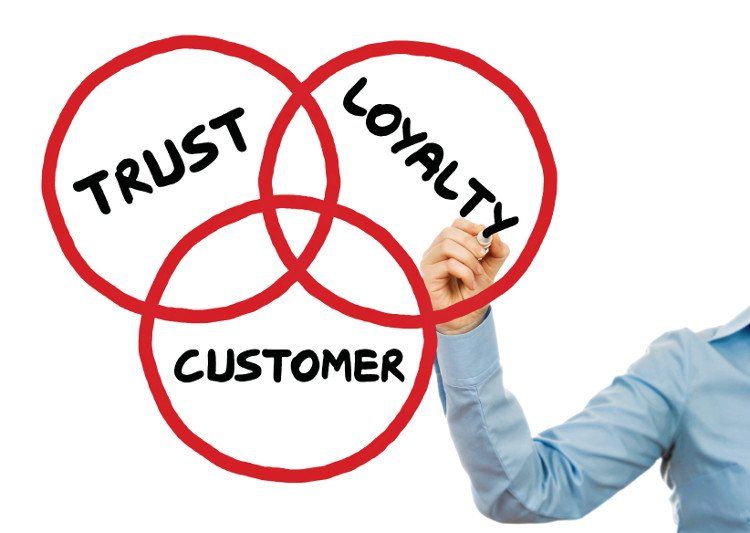Subscription services, the next wave in dietary supplement retail?
Retailers and brands might want to consider signing up to the subscription model-at least for a trial run.
Creative soul - Stock.adobe.com

Industry insiders and observers know: The changes rocking the dietary supplement retail landscape have been nothing short of whiplash-inducing. (Fortunately, the marketplace is rife with products to help ease the resulting inflammation.)
Yet the changes keep coming. For just when you thought that online purchasing and Amazon had shaken things up enough, a spate of new supplement subscription services are promising to bring personalized nutrition directly to consumers, right when they need it.
And as far as Jason Brown is concerned, it’s an idea whose time has come. “A dramatic shift in supplement retailing is occurring,” he says. “Consumers want more than the cookie-cutter supplements found on retail shelves. They want personalized recommendations unique to their own bodies, delivered conveniently to their doorsteps every 28 days.”
Of course, Brown-founder and CEO of Persona (Snoqualmie, WA), one of the subscription services generating the whiplash-has a dog in this fight. But if you think he and likeminded entrepreneurs are imposing the trend upon the industry, you’d be wrong. “The force driving this is the consumer,” Brown maintains, “and their desire for high-quality, sustainable nutritional supplements made just for them.”
So retailers and brands might want to consider signing up to the subscription model-at least for a trial run.
What’s Old Is New Again
In some sense, the supplement subscription service might not be all that revolutionary a concept. Lisa C. Buono, client insights principal, healthcare vertical, IRI (Chicago), seems to recall that as far back as the 1990s, GNC looked into experimenting with such services. “And I believe,” she adds, “that mail order companies have been doing this for years.”
The model’s appeal is easy to grasp, especially from the consumer’s standpoint. “Subscriptions eliminate the need for an additional shopping trip-either digital or in-person-by providing consistent supply,” Buono notes. “And anything that makes the consumer happy when it comes to shopping tends to work.”
But as for the core impetus behind the shift to subscriptions, online’s influence is impossible to understate. “Without a doubt,” says Matthew Oster, head of consumer health, Euromonitor International (Chicago), “we’re in a phase in the development of supplement retailing where interest in the category, and thus sales growth, is driven largely by e-commerce.”
The Move Online
He calls this the “third wave” in the evolution of supplements retailing, with the first being the rise in the 1990s and early 2000s of “health-food” shops with considerable space given to supplement options, and the second being what he calls “the massification of supplements, with parapharmacies and grocery retailers devoting large amounts of shelf space to a broader array of supplement options.”
But this stage is different. “The movement online stems from a few changes to consumer behavior,” Oster explains. “More consumers-and especially younger ones-have become accustomed to getting health information online rather than through a physician or pharmacist,” he says, making their initial move to online purchasing “a natural” next step in the progression.
Online supplement shopping also picked up pace subsequent to the subscribe-and-save options that Amazon began offering on many brands earlier this decade. More recently still, companies have deepened their online strategies by leveraging online influencers and peer networks.
Indeed, Oster observes, “Many niche and emerging supplement brands promote their brands through social media platforms like Instagram, and forgo store-based retailers for Amazon-or, increasingly, remove the middleman altogether and sell their products directly to their consumers.”
Special Delivery
Enter the subscription service, which has “emerged as a promising area for future growth in supplements,” Oster says. “The market is only a few years old, but it’s taken advantage of the consumer trends driving the industry now.”
In addition to the trends mentioned above, Oster lists others-the demand for transparency in ingredients, their sourcing, and their benefits; consumers’ insistence on knowing how a product will meet their personal health goals-as pivotal to making the subscription model a going concern.
“Mass-produced supplements can only realistically get us partway to answering these questions,” he says, noting that dividing consumers into somewhat crude segments like seniors, women, teens and expectant moms fails to acknowledge their individual needs sufficiently even to hope to meet them.
“An increasingly vocal minority of consumers is demanding more information, and a more personalized approach,” Oster concludes. “Subscription services go right to the point of these requests: not being designed as mass-oriented products, they have the ability to provide much more transparency in sourcing and ingredients than ever. Their entire business model is also constructed around designing products with an individual in mind, rather than a broad group.”
Personal Growth
That’s certainly Persona’s approach, and to hear Brown describe it, it’s working. “Given the successful response to our new multivitamin, rebrand, and charitable spirit,” he says, “Persona has rapidly expanded and is forecast to earn 3,000% year-over-year growth in 2018.” With more than 450,000 consumers taking the service’s personalized nutritional assessment in 2018 alone, and with more than 40,000 orders shipped since launch, “We’ll continue our aggressive growth in the coming months.”
Subscribers will likely lap it up, Oster predicts, for the simple reason that despite their reputation for being demanding, “these same consumers, paradoxically, are stretched for time and actively request help in finding the right product for them.”
This is especially so in the supplement space, whose size, opacity, and potential to perplex make it “readymade for a trusted curator,” Oster says, “especially if that curator also offers products with a personalized touch. Subscription services fill the role of curator and adviser for the consumers who’s engaged with health, but stretched for time or in need of a helping hand.”
What’s Next?
For his part, Brown is bullish not just on the subscription model, but on its next stage of evolution.
“As this movement continues to build momentum,” he says, “we predict that the model will lend itself to retail popups that allow consumers to engage with registered dietitians and nutritionists to guide them through initial nutritional assessments and recommendations. Once they’re set up on their subscription services, consumers can easily connect remotely with nutritionists for questions or changes in their individual plans.”
After that, the sky’s the limit. “Going forward, the supplement subscription platform-especially the personalized nutrition model-will be a retail force to be reckoned with because it’s going to transform how consumers identify the best supplements for their health goals while also providing them safe options,” Brown concludes. And when an opportunity like that knocks, brands should be ready to open the door.
Read on for suggestions on how you and your brand can open the door to subscription opportunities.
Photo © iStockphoto.com

Safety First
Dietary supplements, it goes without saying, are safe, wholesome, and healthful. But one truth underscored by the subscription model’s emphasis on personalization is that not every supplement is safe, wholesome, and healthful for every consumer.
“For instance,” Brown says, “many consumers don’t realize they should consult their healthcare practitioner prior to starting a nutritional supplement regimen.” Yet 40% of Americans taking prescription medications and dietary supplements were unaware of drug-nutrient interactions, according to a national survey that Persona conducted earlier this year with Wakefield Research.
So to keep those consumers safe, his company conducts a nutritional assessment of potential subscribers that cross-references more than 650 prescription medications as a prerequisite to delivering a supplement recommendation, let alone to delivering the actual supplement subscription.
Photo © iStockphoto.com/kupicoo

Going Pro
As the previous slide suggests, supplement safety is serious stuff that shouldn’t be left to chance. So Brown advocates that subscription services not only thoroughly assess the needs and health states of potential subscribers, but staff up their own organizations with professionals who know the ins and outs of nutrition.
“Build a medical advisory board that’s more than just credentialed experts on your website,” he says. “Surround yourself and your business with healthcare practitioners who really care about the wellness of others and are dedicated to developing nutritional supplements that are high-quality, safe, and deliver efficacious levels of important nutrients.”
Indeed, the customer care representatives at Persona are registered dietitians and nutritionists with professional degrees and educational backgrounds in nutrition-“so they can provide quality and safe recommendations for our subscribers,” Brown says.
And don’t limit this approach to the medical side of things, he adds. Supply chain, marketing, legal, technology, operations-all teams contributing to a subscription service’s success deserve professional players, don’t they?
Photo © iStockphoto.com/guyerwood

Listen Up
Brown revels in-and is quick to mention-the 450,000-plus nutritional assessments his company has completed with subscribers, and not just because they reflect the subscription service’s success. The insights his staff gleans from those assessments, he says, “are endless.” And valuable.
“We’re developing more than 40 new nutritional products to launch before the end of this year,” Brown says, “and it’s all because of listening to our customers.”
Just as important as listening to customers, he adds, is being there for them. “You also need to be accessible,” Brown notes. “That’s why we have nutritionists easily reachable by phone, e-mail, or webchat seven days a week for our customers to access when they need help.”
Photo © iStockphoto.com/Devonyu

Getting to Compliance
It’s a fact universally acknowledged among nutrition professionals: A consumer’s purchase of a supplement is only the first step in a journey toward wellness. Actually remembering to take that supplement on a regular basis is the long road they’ll have to follow if they ever want to get there.
And here, subscription services can help. “Consumers routinely under-consume supplements,” Buono observes, “and subscriptions could increase compliance to get them up to true daily consumption.”
Brown agrees. “We know it’s difficult always to remember to take supplements. So in October, we launched our new app to give subscribers the ability to set daily reminders to take their vitamins, while making it easy to connect with one of our on-call nutritionists in real time through a call, e-mail, or app chat.”
As far as Brown can tell-and he’s done his research-Persona’s is the only app whose daily reminder feature automatically adjusts time zones as subscribers travel, too. “So they can consistently take their supplements while on the go.”
Photo © iStockphoto.com/fotosipsak

Don’t Overwhelm
The potential subscription services have to revolutionize effective supplement delivery and compliance can seem like it’s all upside.
“But there’s a downside here,” Buono cautions. “When the human-nature part of supplement consumption takes over and we forget to take them a day or two here or there”-the best-laid efforts of those reminder apps notwithstanding-“the continuing subscription could aggravate the user by causing a pileup of unused product and wasted spend.”
Add to that the time and energy-ever in short supply these days-it takes to suspend or terminate the service and the customer may find themselves aggravated even further. “So I do think subscriptions work if they don’t overwhelm and if they adjust,” Buono concludes, “and if they still provide the consumer with info on what’s new, and with an alternative to being locked in to the same old, same old.”

Prinova acquires Aplinova to further increase its footprint in Latin America
April 7th 2025Prinova has recently announced the acquisition of Brazilian ingredients distributor Aplinova, which is a provider of specialty ingredients for a range of market segments that include food, beverage, supplements, and personal care.






















